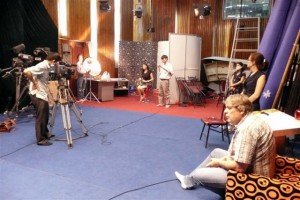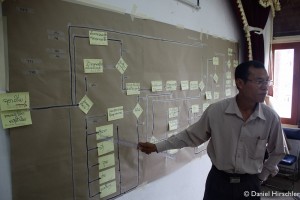Search Results for Tag: training
Teaching TV interviews in Vietnam
A good interview should be informative, authentic, credible and sometimes even surprising. In the past two weeks, the participants in our workshop ‘Advanced Interview Training’ were able to discover the special benefits of this journalistic format.
Together with my colleague Uli Köhler, I am training journalists in the Vietnamese capital Hanoi. Our 15 trainees work for Vietnam Television (VTV). Most of them are reporters in Hanoi, but we’ve also got the VTV correspondents to Russia and to China in our group. All of our participants are keen to learn more about conducting interviews and recording vox pops.
As Uli and I will leave Vietnam in a couple of days, the trainees are now working on their final productions. Their topic is ‘same-sex marriage in Vietnam’. They chose this topic themselves after an hour-long discussion.
![]() read more
read more
Creating confidence in the classroom
Active acquisition of knowledge to solve concrete challenges creates confidence. And that’s something you need when you have to teach journalism to a classroom full of young Laotian twentysomethings, as do the instructors at the National University of Laos (NUOL).
These instructors are currently students themselves: they’re taking part in journalism teachers’ training and coaching, which is organized in partnership with DW-AKADEMIE’s Asia team.
At a workshop in December we reviewed some of the progress made so far. “I have more confidence in teaching these subjects now,” said one of the younger colleagues. Others agreed.
One senior lecturer brought along a revamped version of a project the training participants had created the previous September – a newspaper made from scratch. It was a showcase item at NUOL’s 15th anniversary celebration in November.
The instructors-in-training had put tremendous effort into producing it, and that has really paid off in their daily work. Here’s why:
![]() read more
read more
Getting everyone up to speed in a converged Himalayan newsroom
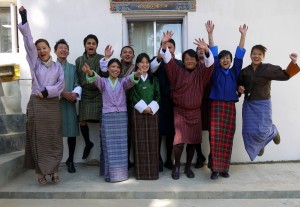 Even high in the Himalayas, reporters these days are being asked to do more.
Even high in the Himalayas, reporters these days are being asked to do more.
As part of a modernization drive, Bhutan Broadcasting Service (BBS) has combined their radio and television newsrooms. In the future, reporters will be required to provide news reports in both media. It’s hoped that the convergence will allow the state-funded station to cut costs and do more with limited resources.
It was against this background that two DW-AKADEMIE trainers went to Bhutan’s high-altitude capital Thimphu to conduct a workshop with an enthusiastic group of 12 young BBS journalists. While several already had some radio production experience, many had previously only worked on the TV side of things.
Together, the group started with a review of the basics, such as news judgment and news writing for radio, before moving on to the interview and how to ask that all-important first question that will grab your listeners and keep them from turning the dial.
![]() read more
read more
Using an “axis of importance” diagram to evaluate sources
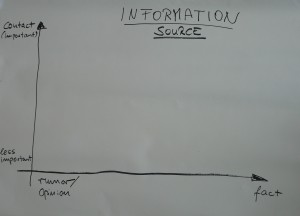 Out of one workshop at NUOL came a good tool that fits perfectly into that quest. It’s a diagram that helps journalists evaluate their sources (see photo at left, click to enlarge).
Out of one workshop at NUOL came a good tool that fits perfectly into that quest. It’s a diagram that helps journalists evaluate their sources (see photo at left, click to enlarge).![]() read more
read more
Educators embark into a new era of journalism in Laos
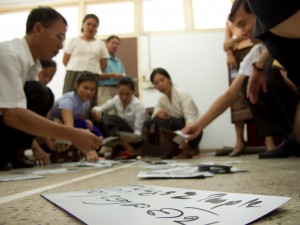 Is there a proper definition of journalism in the Lao language? Since DW-AKADEMIE’s first workshop on journalism at the National University of Laos in Vientiane, there is. It was conceived by 15 staff teachers of the Department of Mass Communication at the Faculty of Letters – after long discussions revolving around somewhat abstract terms like “media”, “the public”, “society” and “information”.
Is there a proper definition of journalism in the Lao language? Since DW-AKADEMIE’s first workshop on journalism at the National University of Laos in Vientiane, there is. It was conceived by 15 staff teachers of the Department of Mass Communication at the Faculty of Letters – after long discussions revolving around somewhat abstract terms like “media”, “the public”, “society” and “information”.
Lao is not a language that lends itself to describing abstract ideas. Yet the 15 teachers feel it was worth the effort to lay a foundation they now can build upon. They are learning the mindset, tools and skills that in combination make a journalist. The reasoning behind this is that they are the ones training a new generation of Lao students who are eager to take on the profession.
![]() read more
read more



